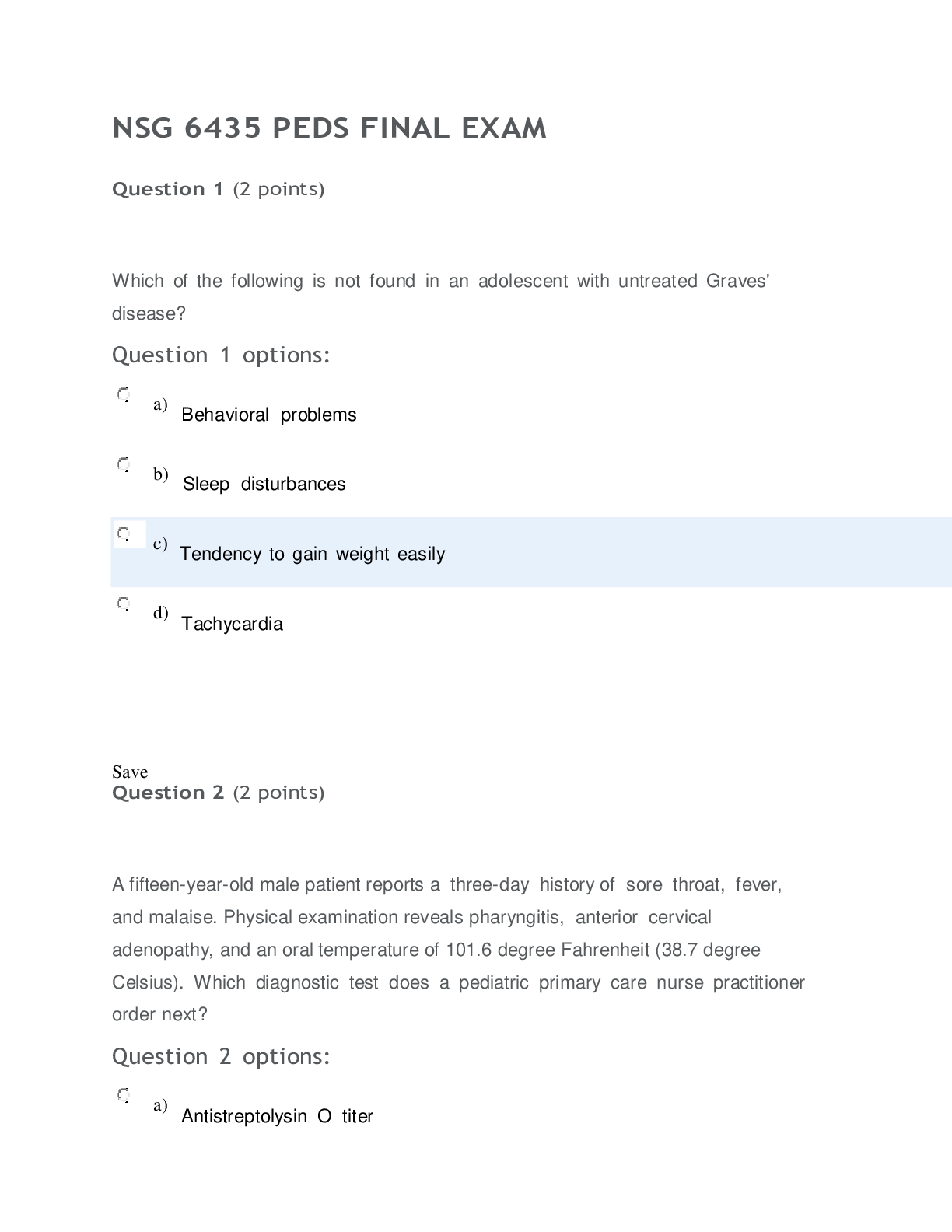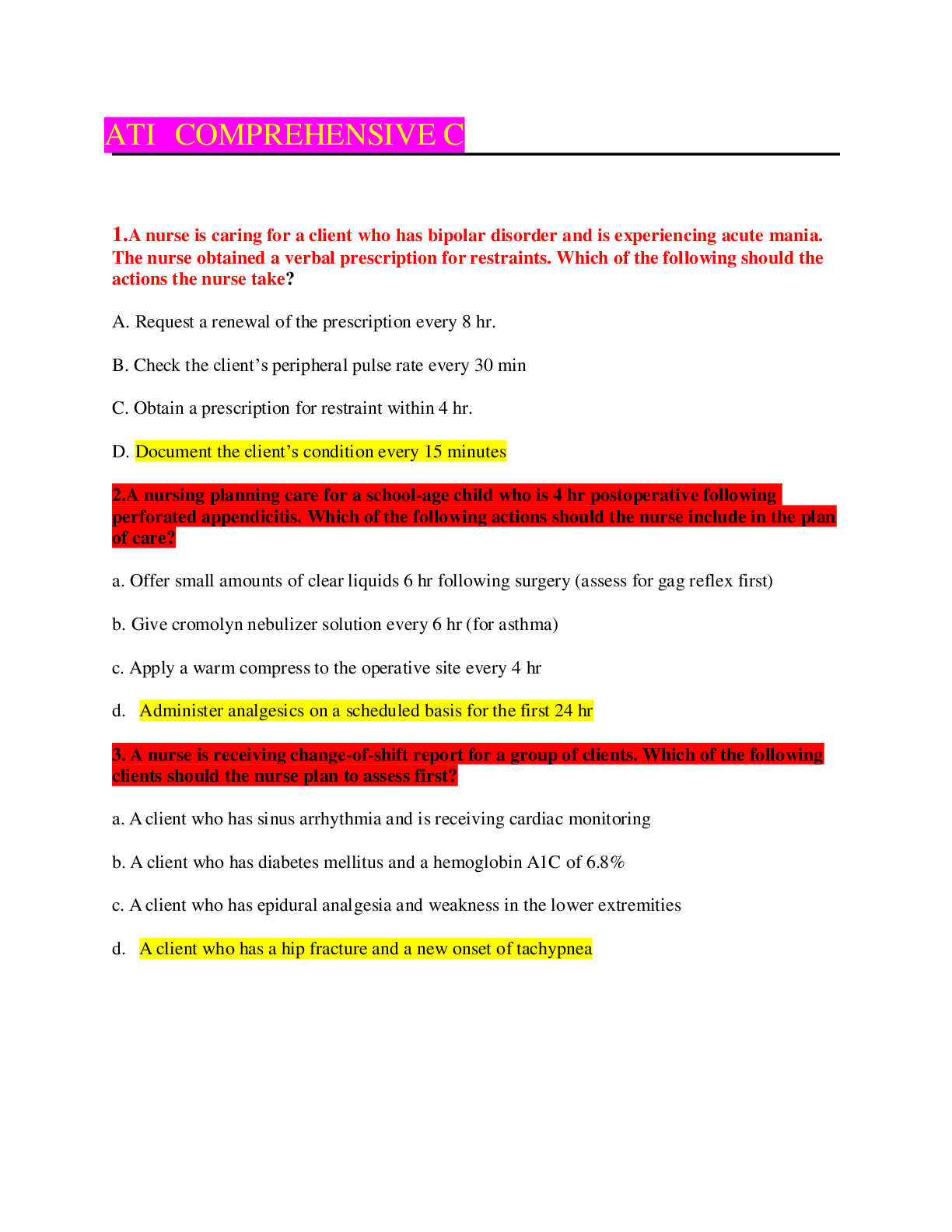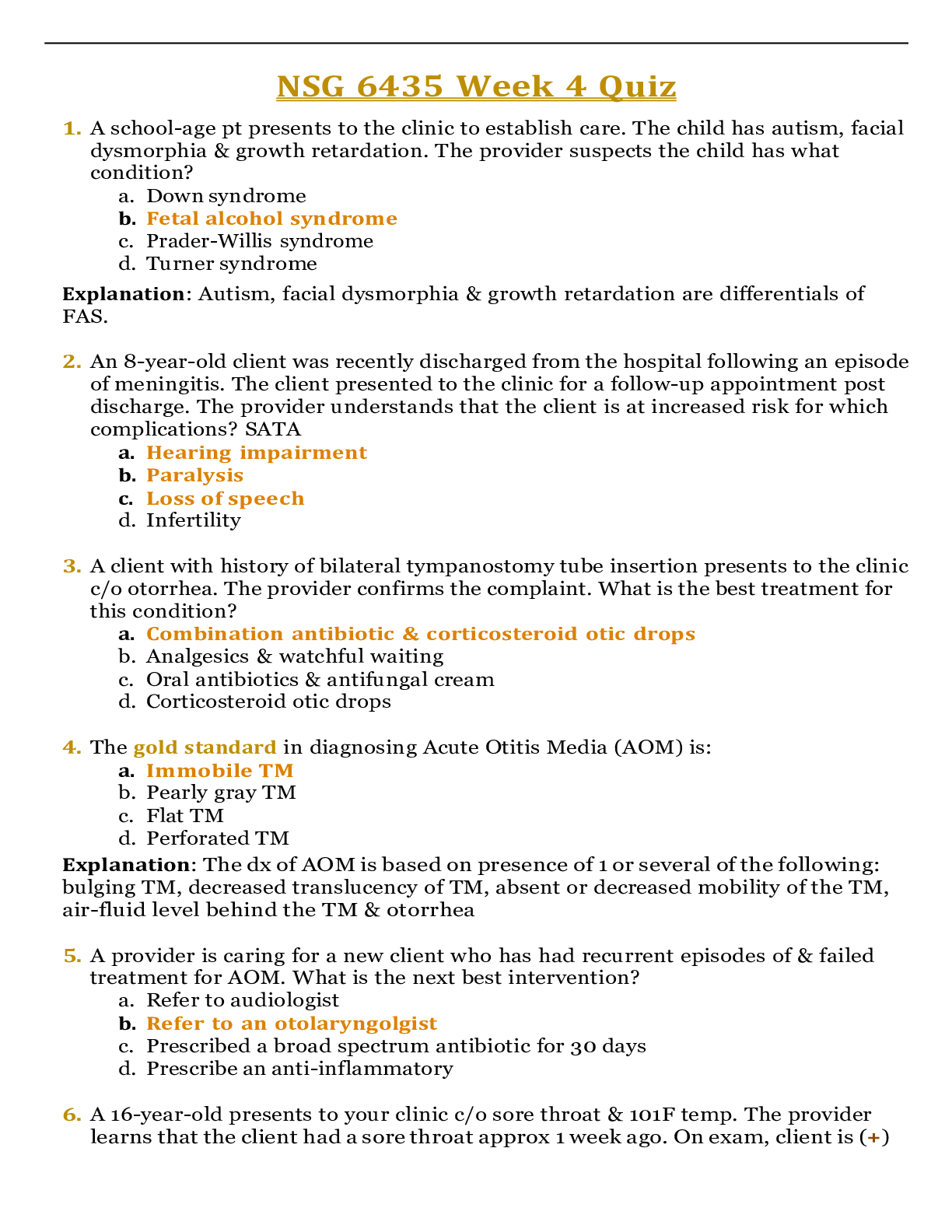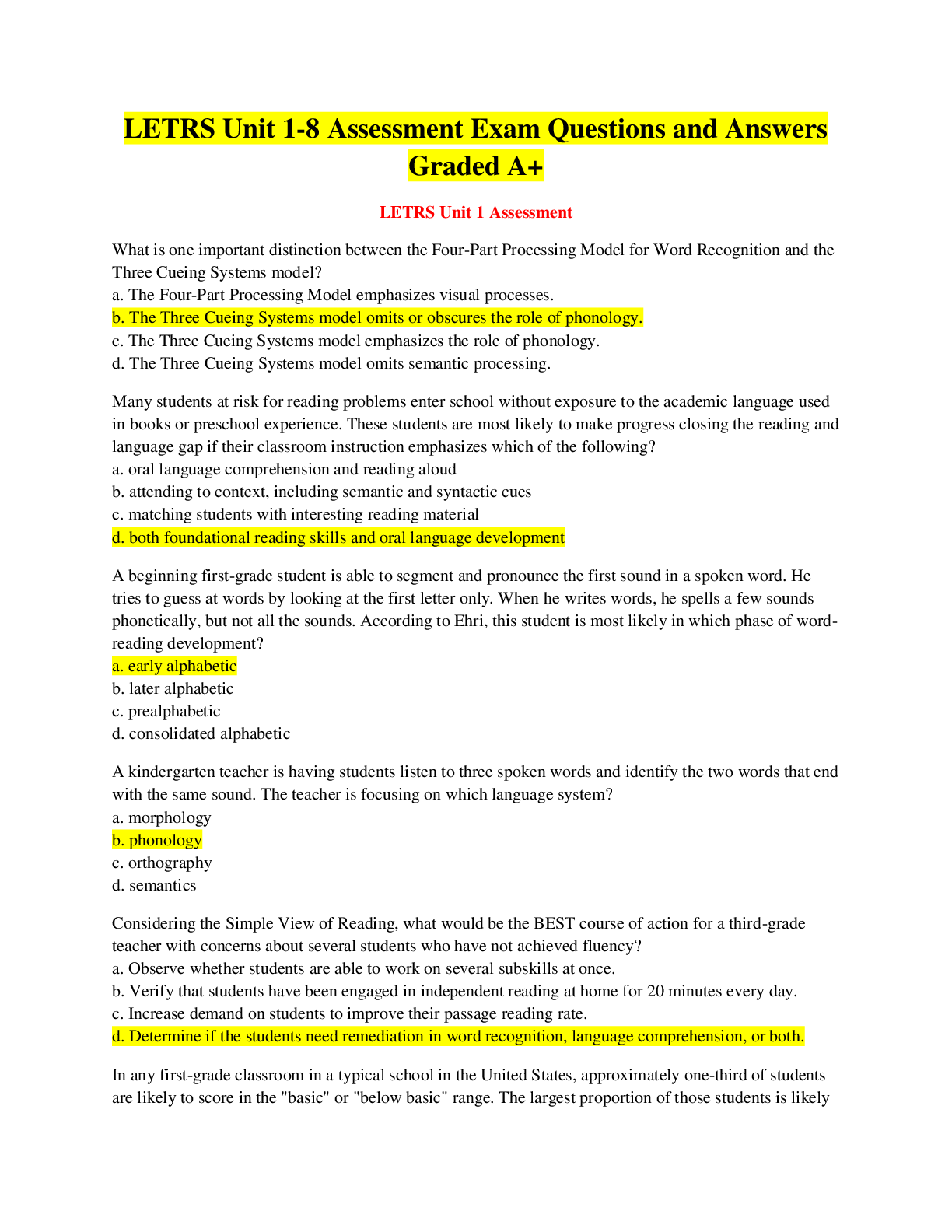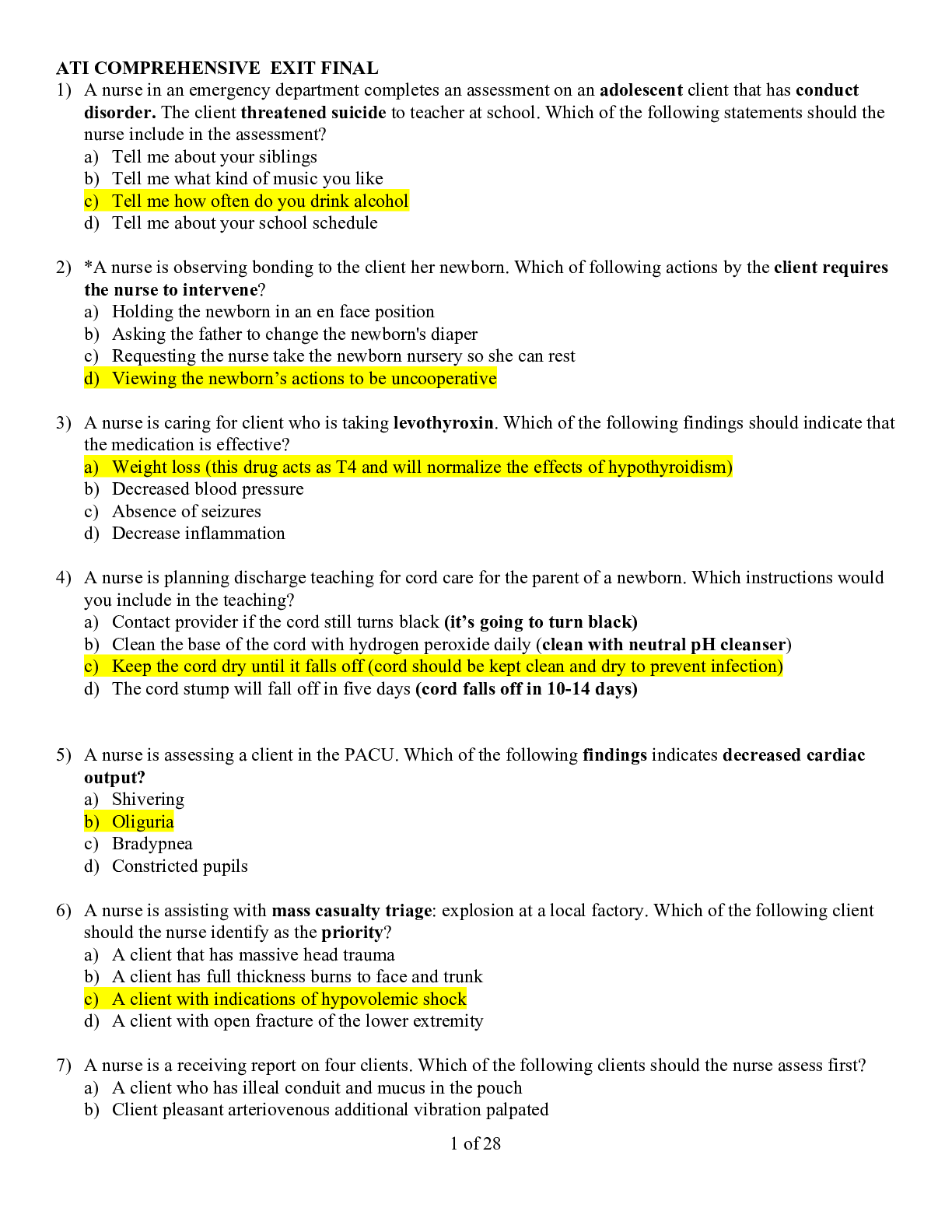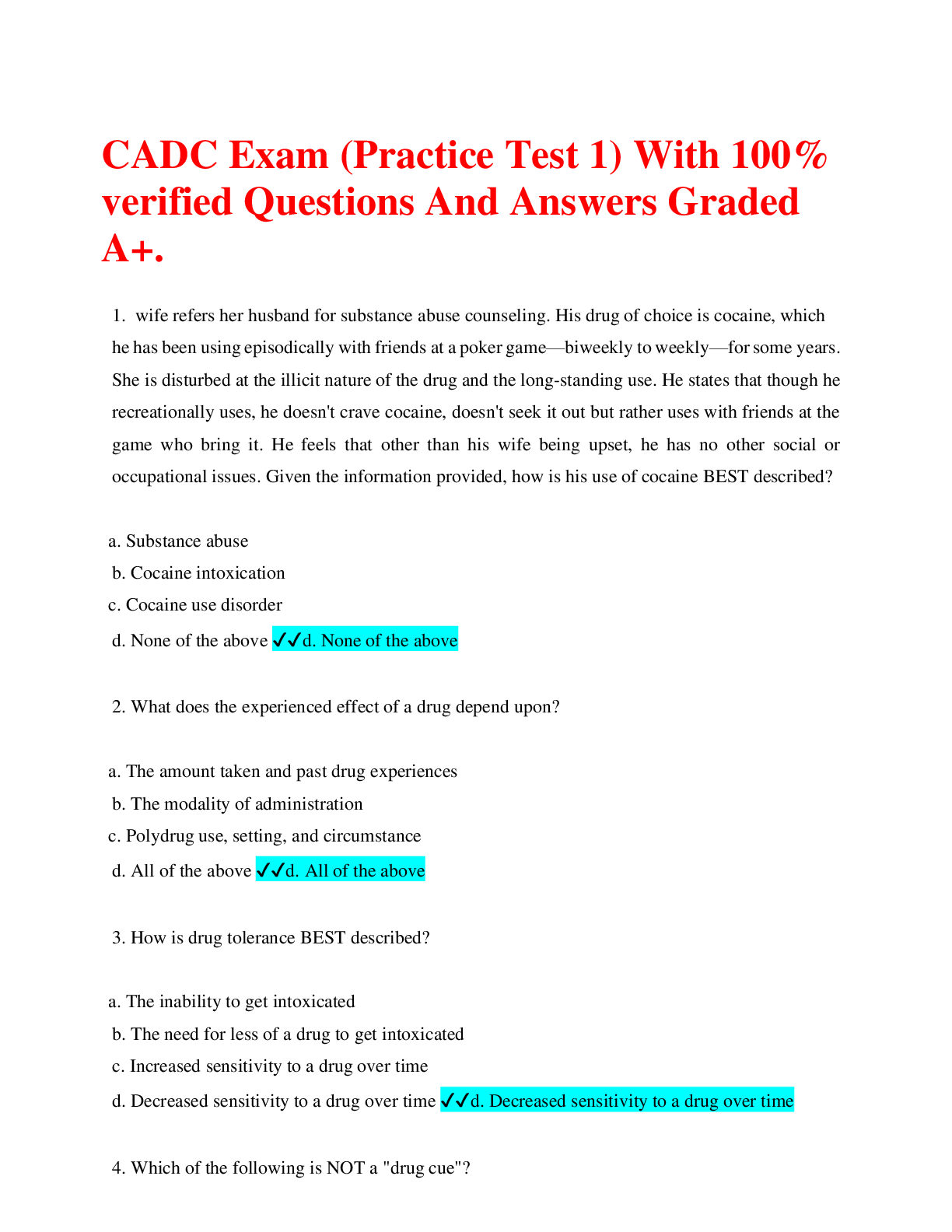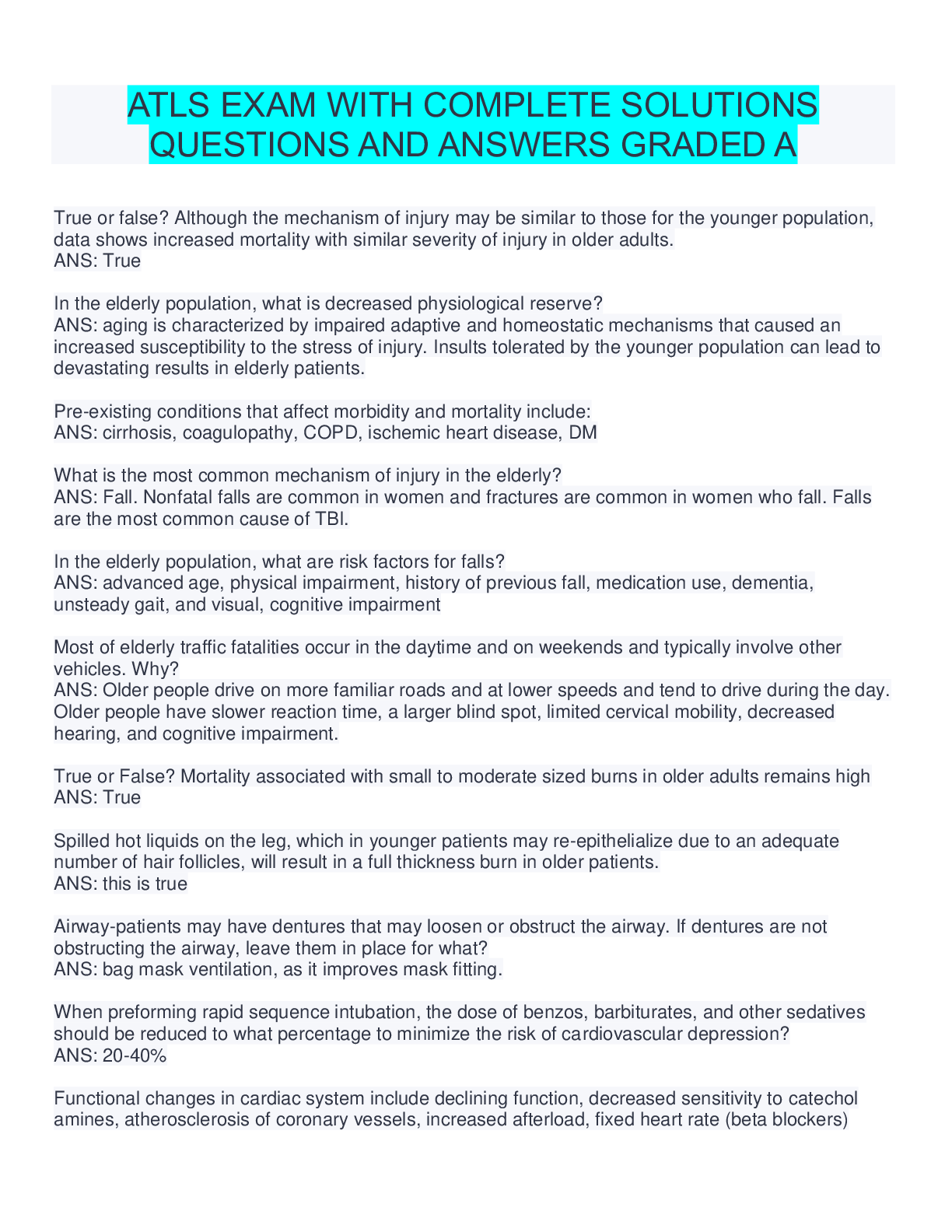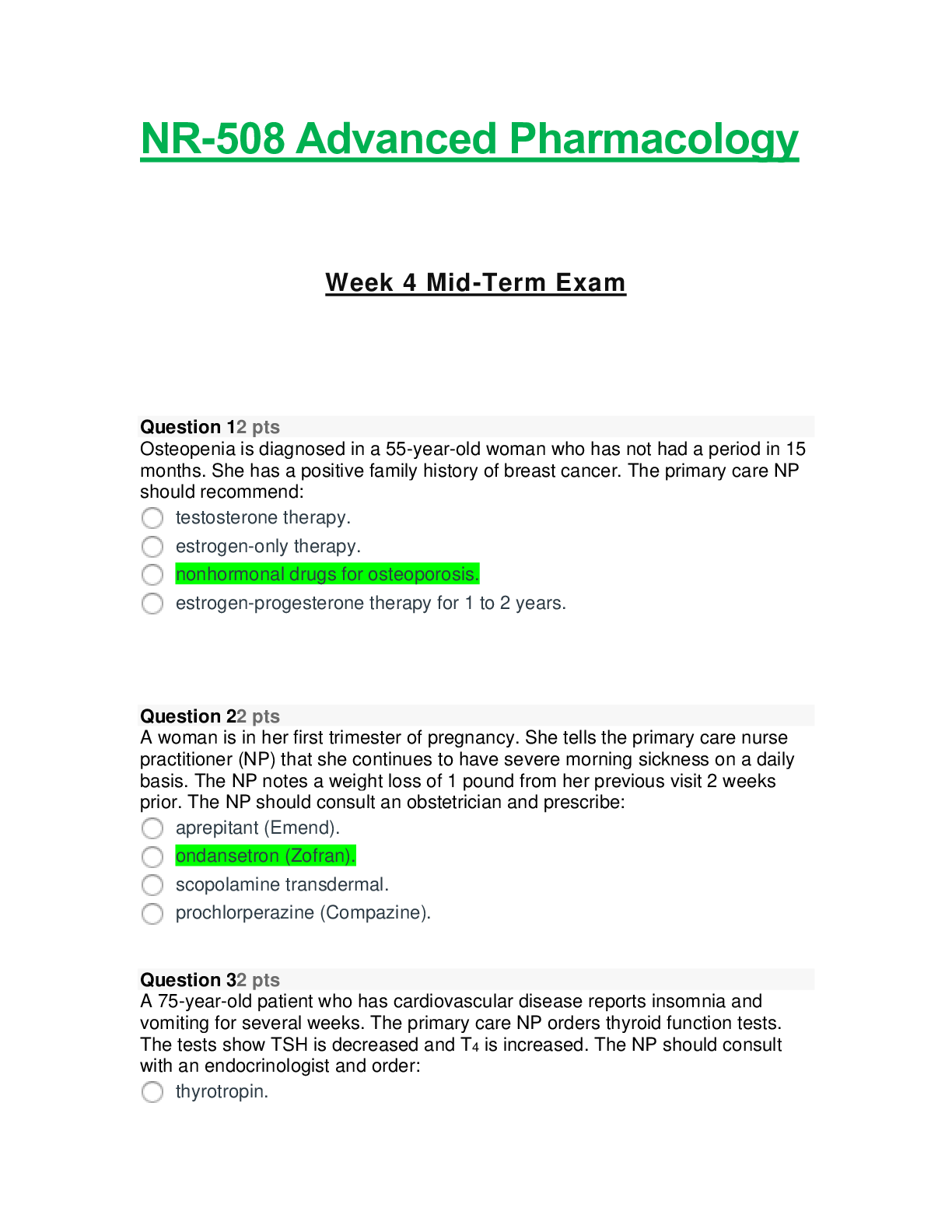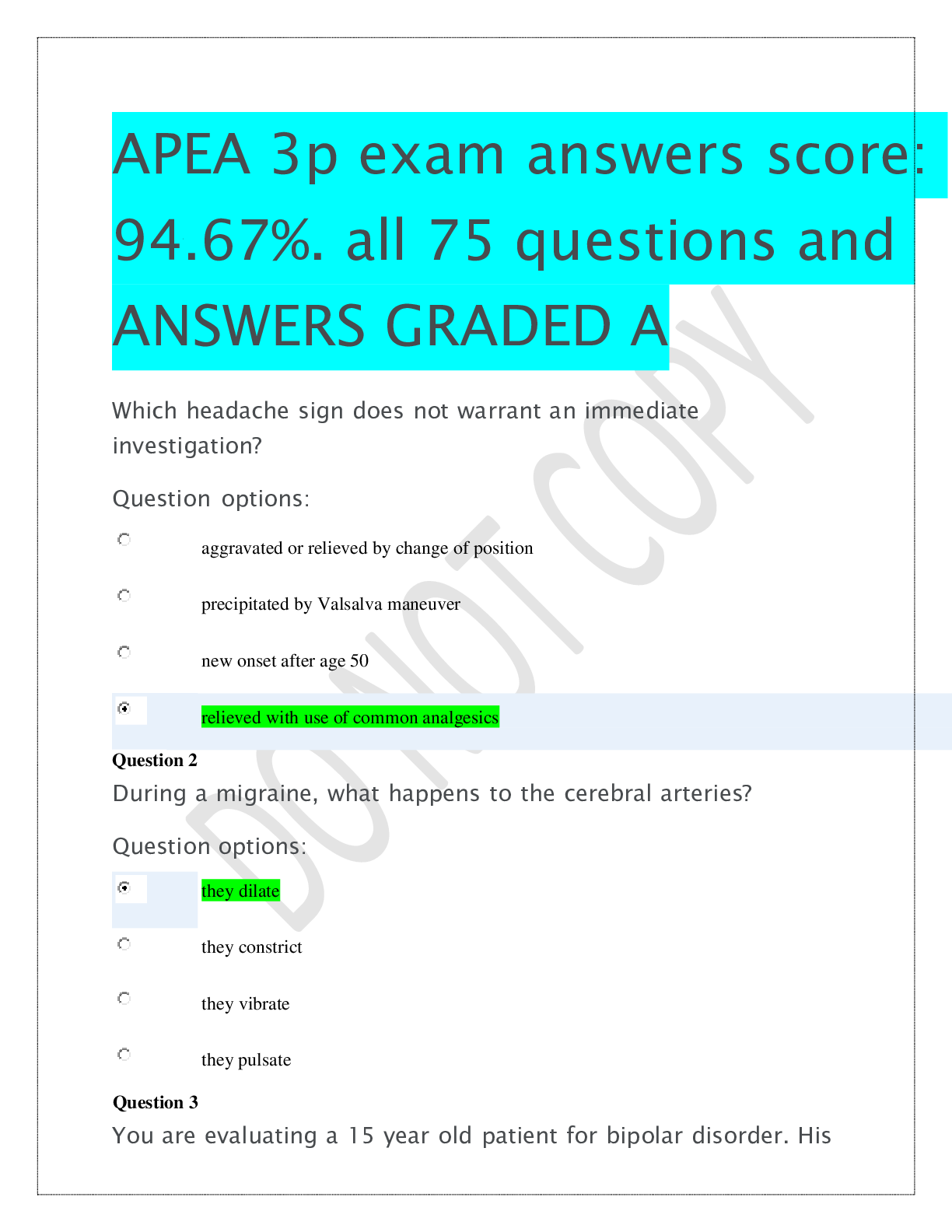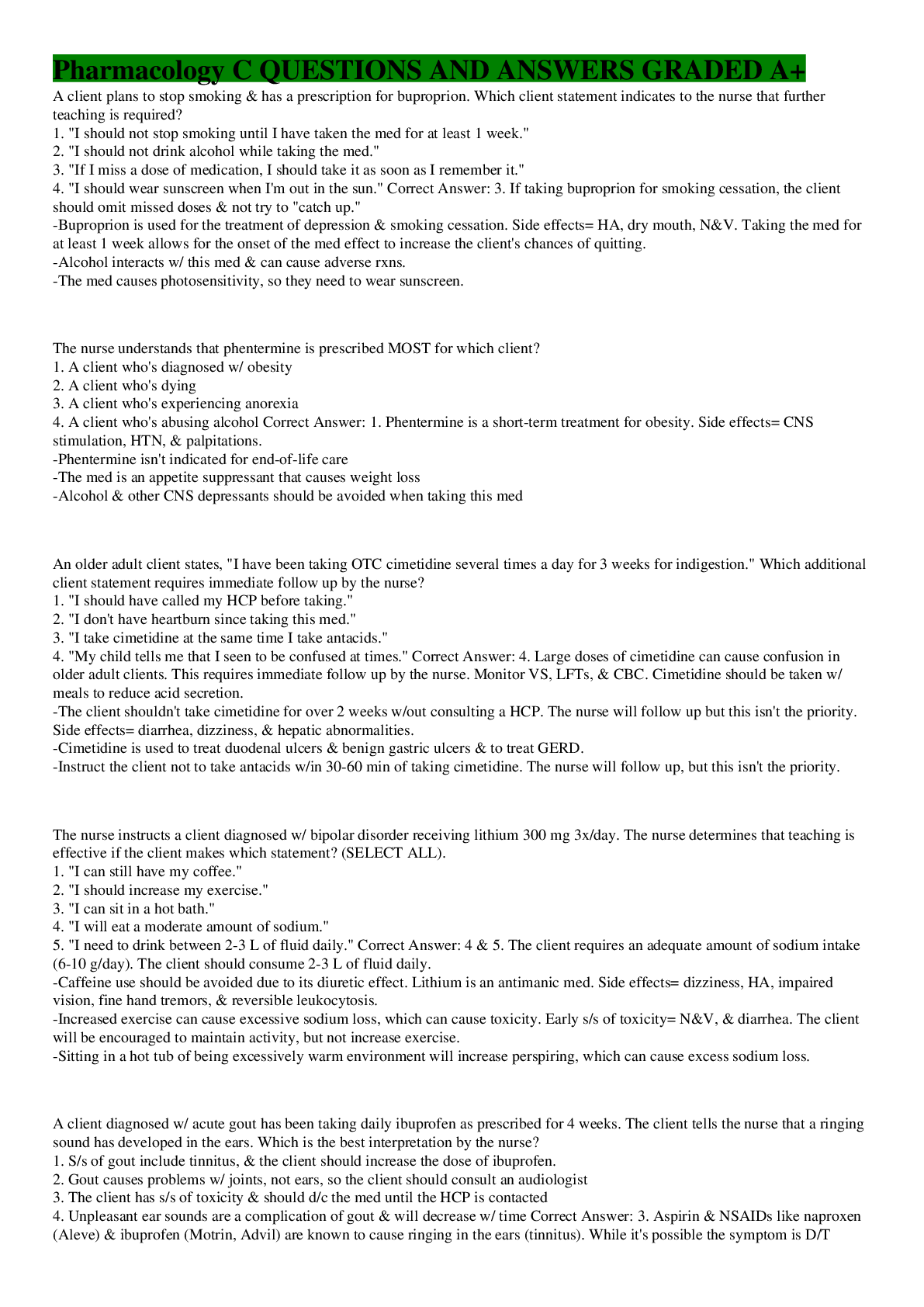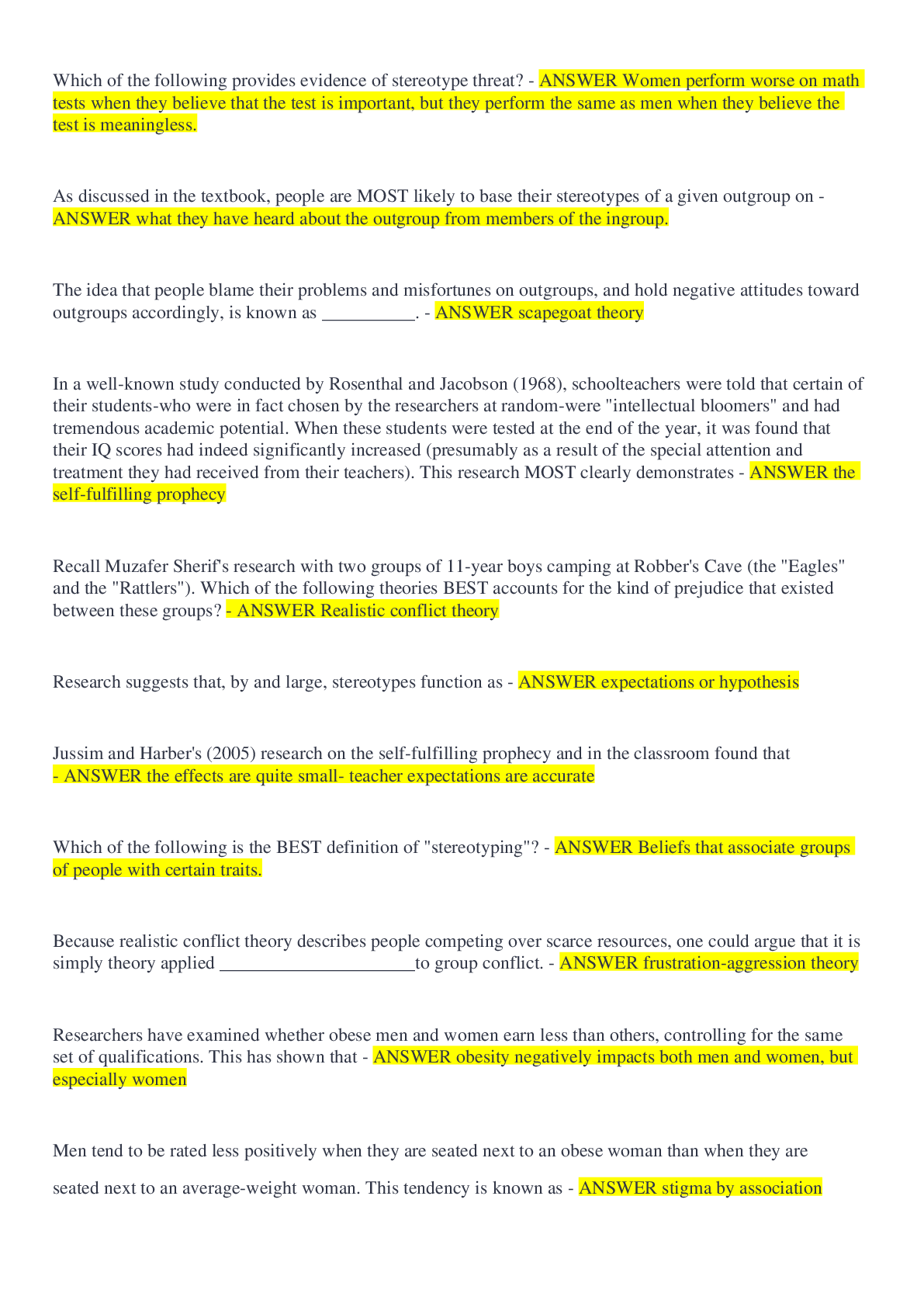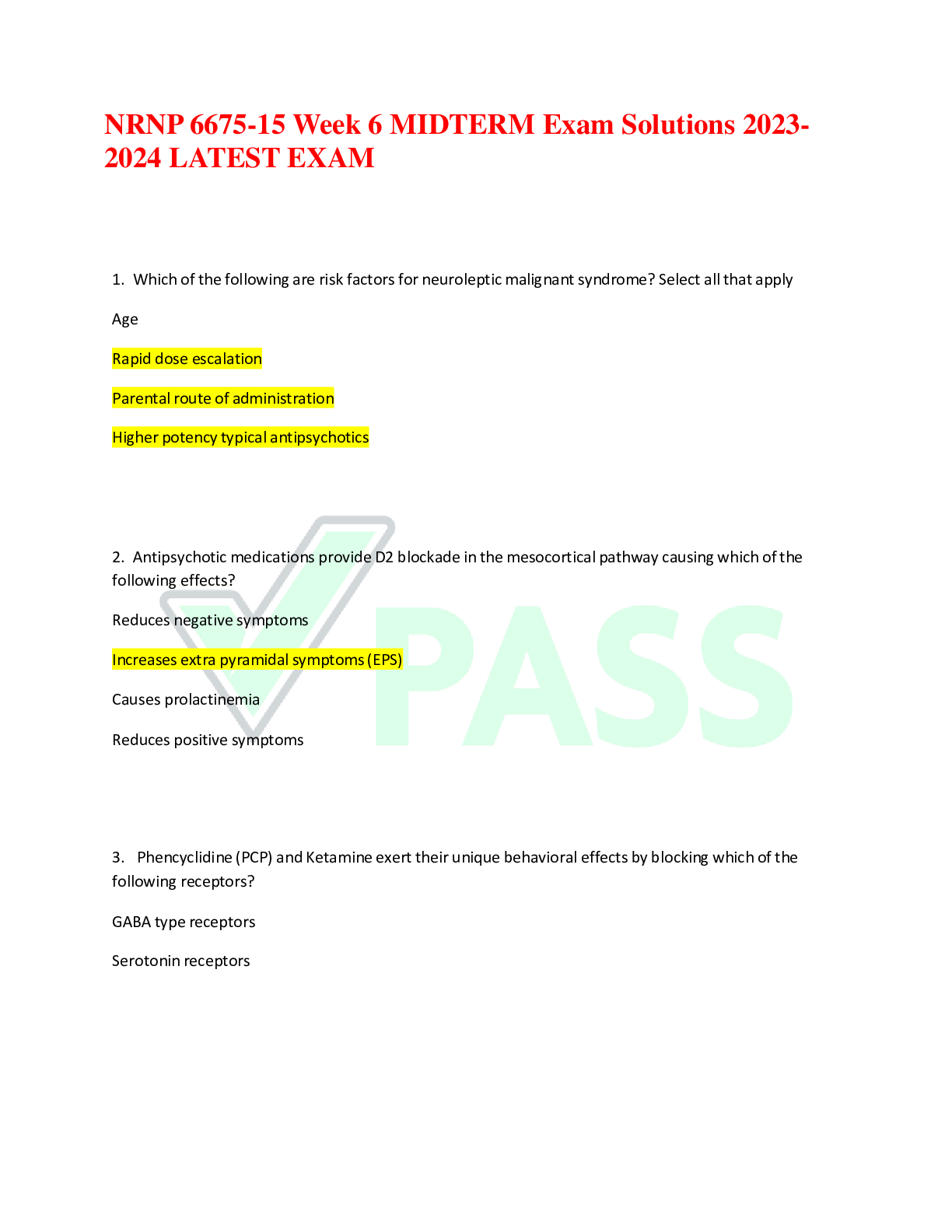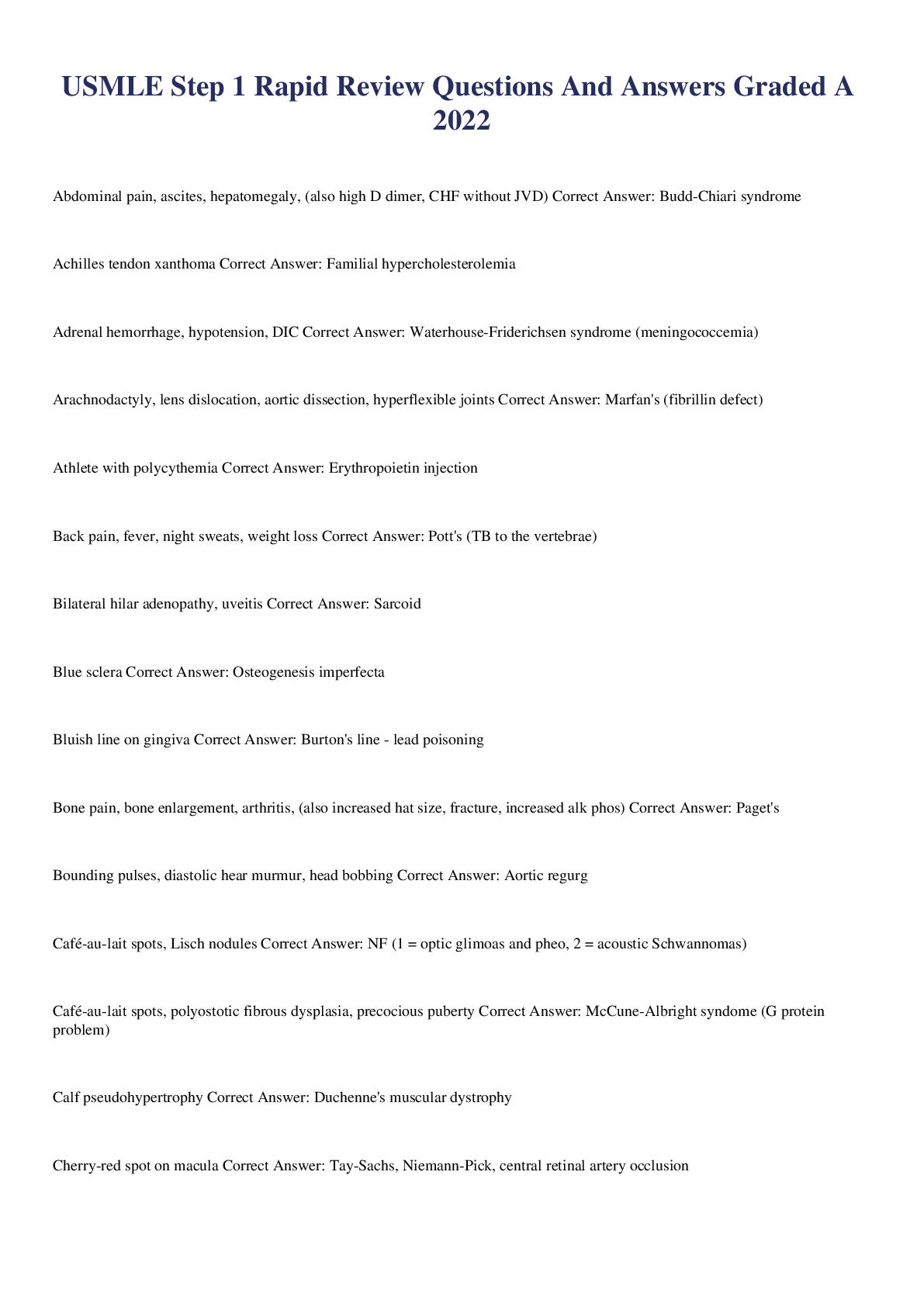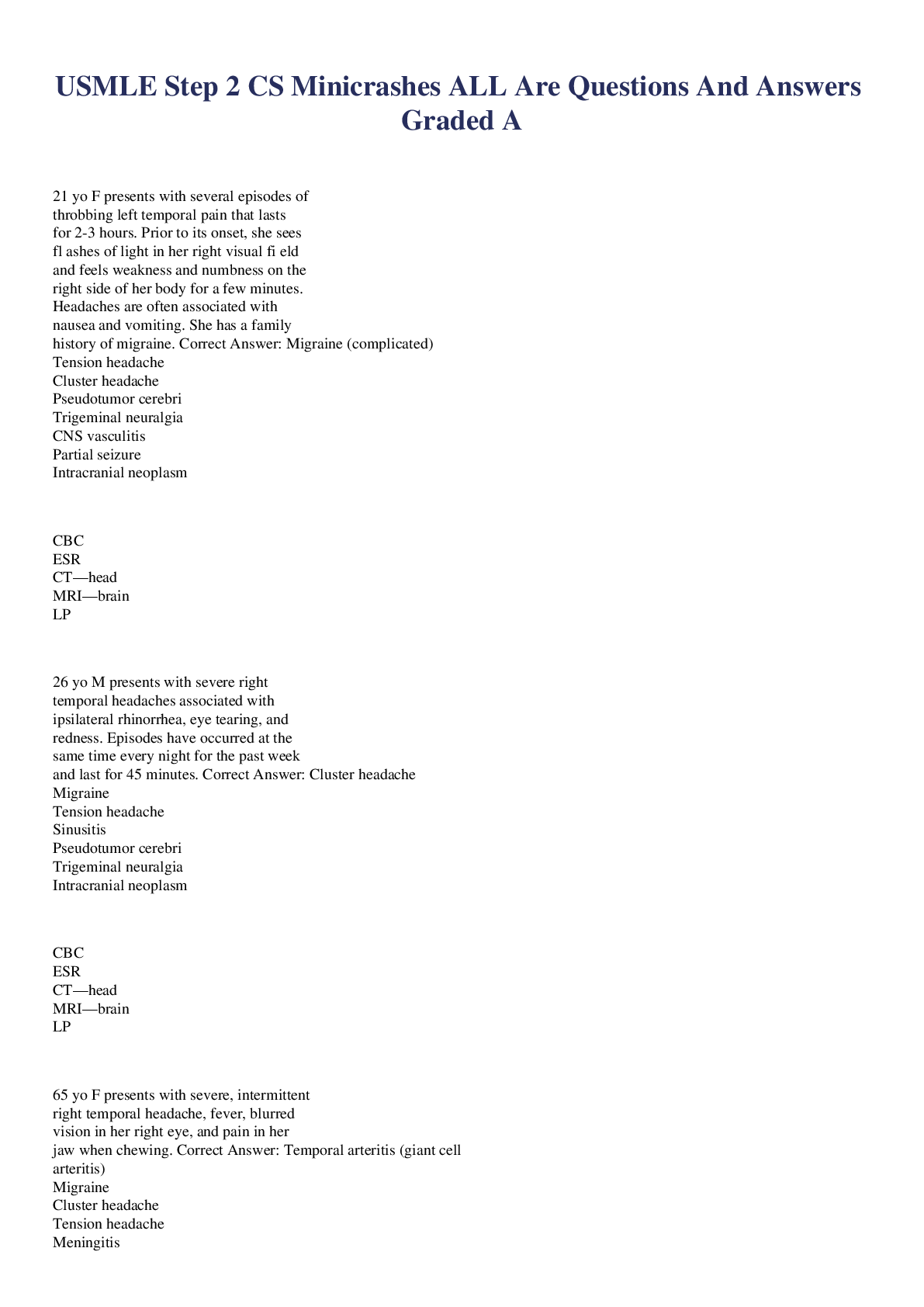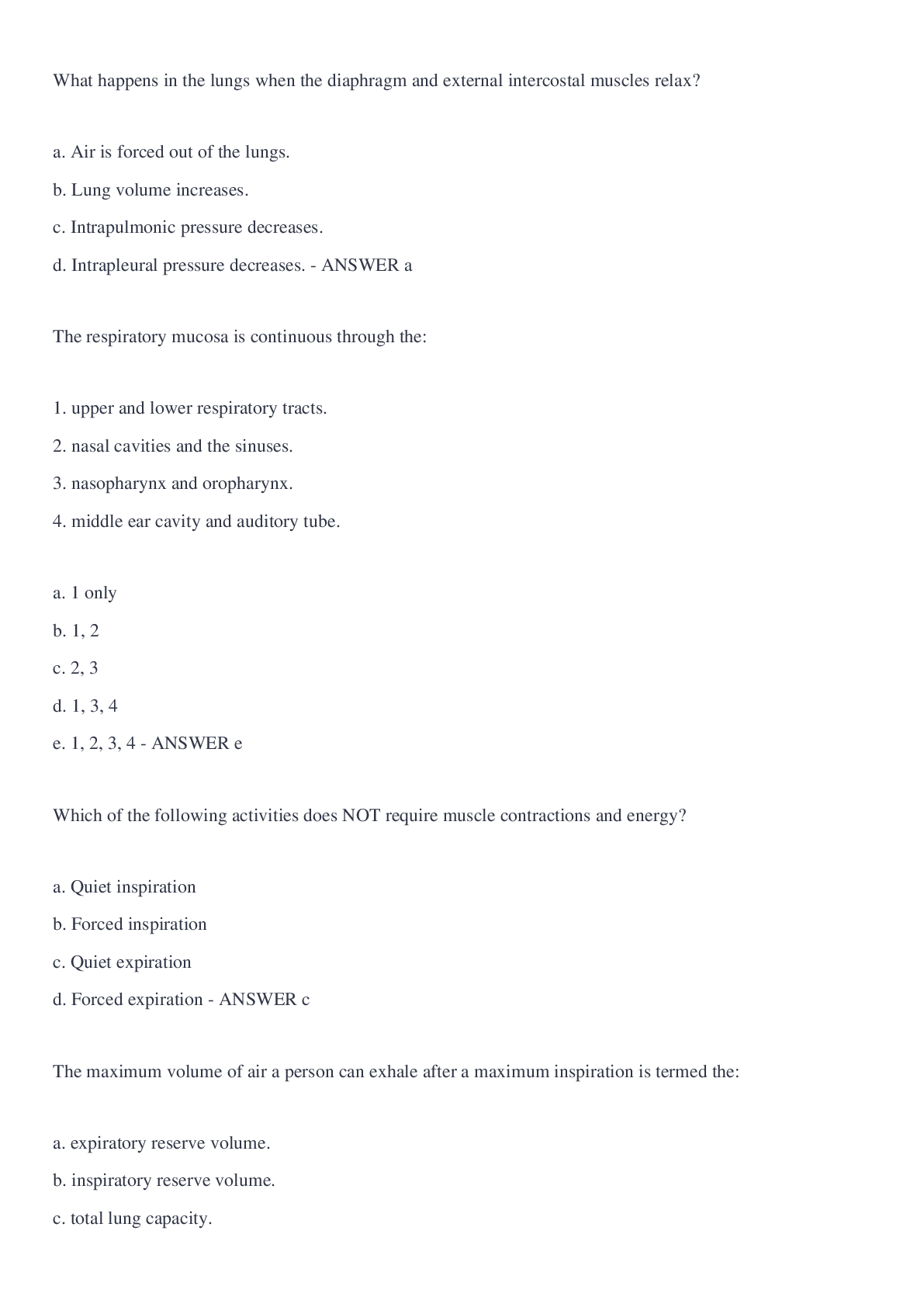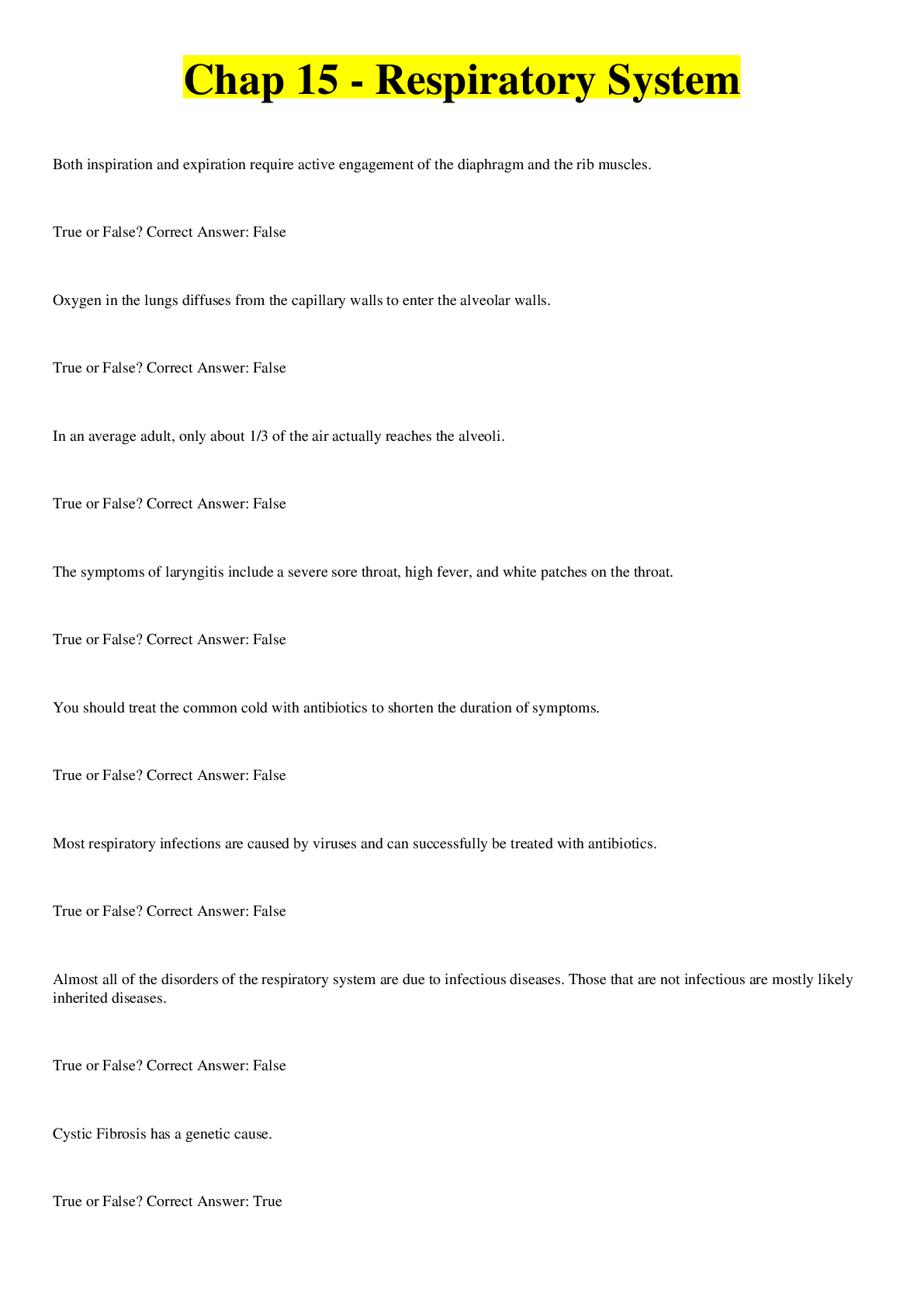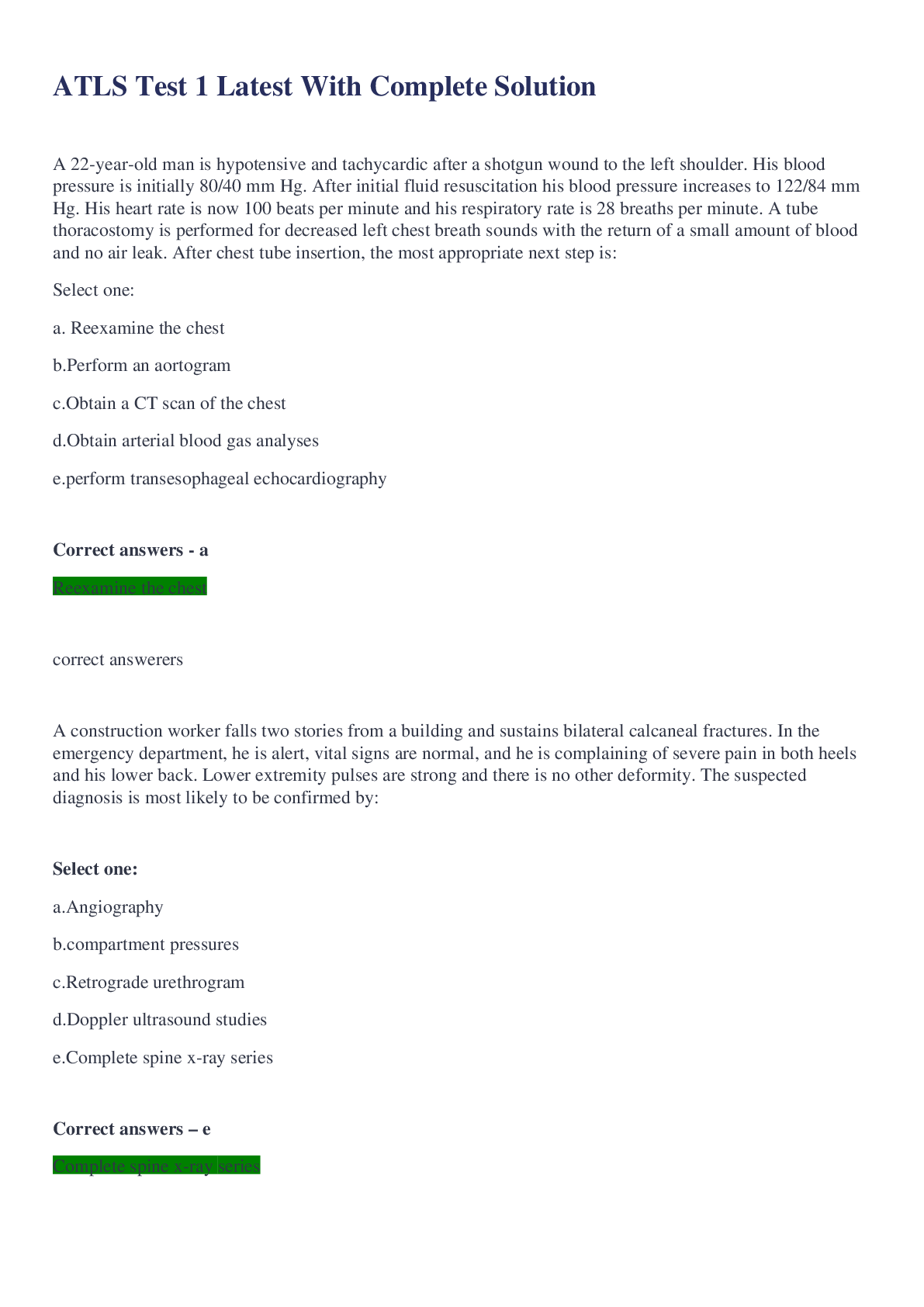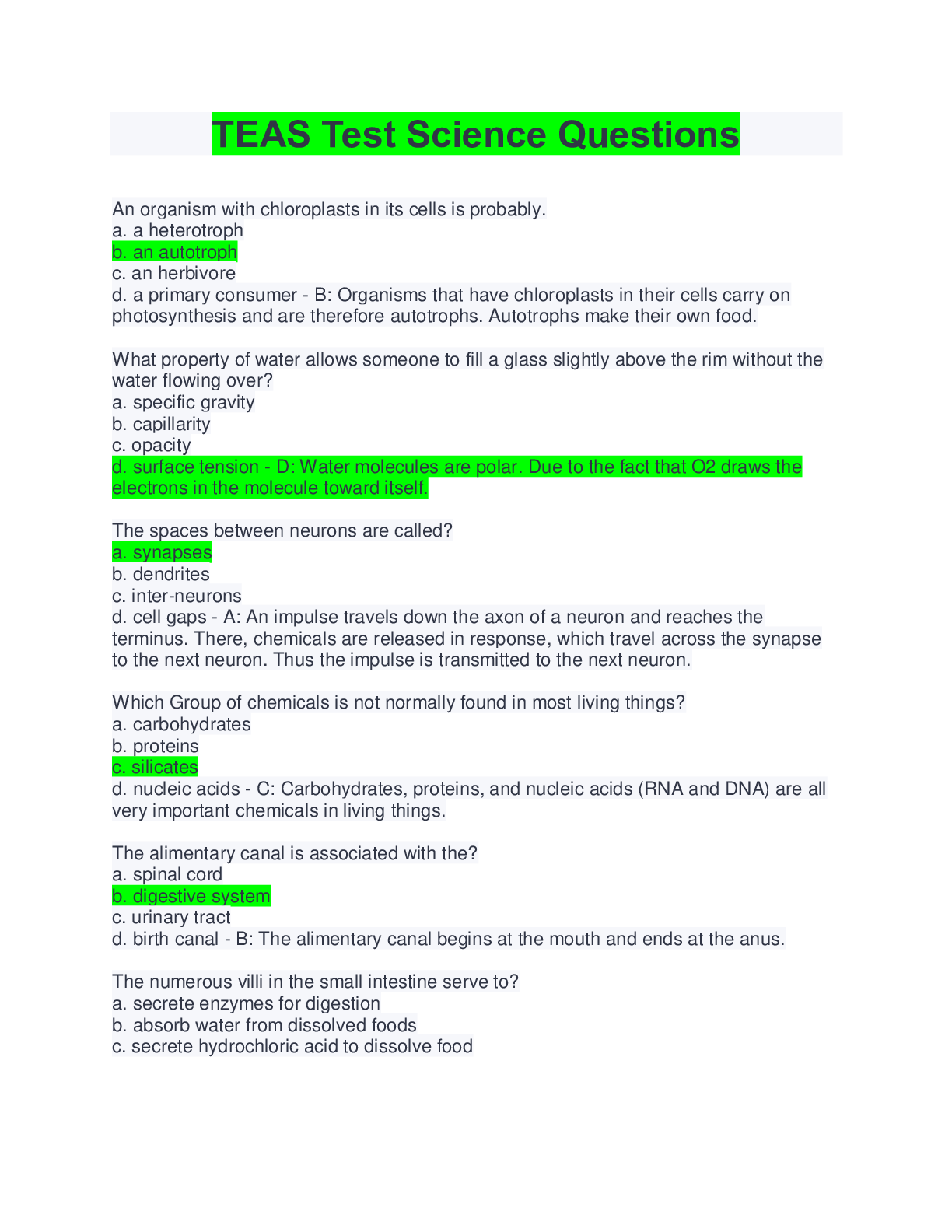NGR 6172 Pharm Midterm exam-questions and answers grade A+]
Document Content and Description Below
1). A patient who takes daily doses of aspirin is scheduled for surgery next week. The nurse should advise the patient to: a. continue to use aspirin as scheduled. b. reduce the aspirin dosage by ha... lf until after surgery. c. stop using aspirin immediately. d. stop using aspirin 3 days before surgery. C Aspirin must be withdrawn at least 1 week before surgery. Aspirin cannot be continued as scheduled, because the risk for bleeding is too great. An interval of 3 days is not long enough for the bleeding effects of aspirin to be reversed. Cutting the dose in half would not reduce the effects of bleeding associated with aspirin use. 2). A patient who takes aspirin for rheumatoid arthritis is admitted to the hospital complaining of headache and ringing in the ears. The plasma salicylate level is 300 mcg/mL, and the urine pH is 6.0. What will the nurse do? a. Increase the aspirin dose to treat the patient's headache. b. Notify the provider of possible renal toxicity. c. Prepare to provide respiratory support, because the patient shows signs of overdose. d. Withhold the aspirin until the patient's symptoms have subsided. D This patient shows signs of salicylism, which occurs when ASA levels climb just slightly above the therapeutic level. Salicylism is characterized by tinnitus, sweating, headache, and dizziness. Tinnitus is an indication that the maximum acceptable dose has been achieved. Toxicity occurs at a salicylate level of 400 mcg/mL or higher. ASA should be withheld until the symptoms subside and then should be resumed at a lower dose. Increasing the dose would only increase the risk of toxicity. Signs of renal impairment include oliguria and weight gain, which are not present in this patient. This patient has salicylism, not salicylate toxicity, so respiratory support measures are not indicated. 3). A pregnant patient asks the nurse if she can take antihistamines for seasonal allergies during her pregnancy. What will the nurse tell the patient? a. Antihistamines should be avoided unless absolutely necessary. b. Second-generation antihistamines are safer than first-generation antihistamines. c. Antihistamines should not be taken during pregnancy but may be taken when breast-feeding. d. The margin of safety for antihistamines is clearly understood for pregnant patients. A Antihistamines are pregnancy Category C, with debate currently occurring regarding degree of effects on the fetus. They should be avoided unless absolutely necessary. All antihistamines have adverse effects on the fetus. Antihistamines can be excreted in breast milk. The margin of safety of antihistamines in pregnancy is not clear, so these agents should be avoided unless a clear benefit of treatment outweighs any risks [Show More]
Last updated: 1 year ago
Preview 1 out of 20 pages
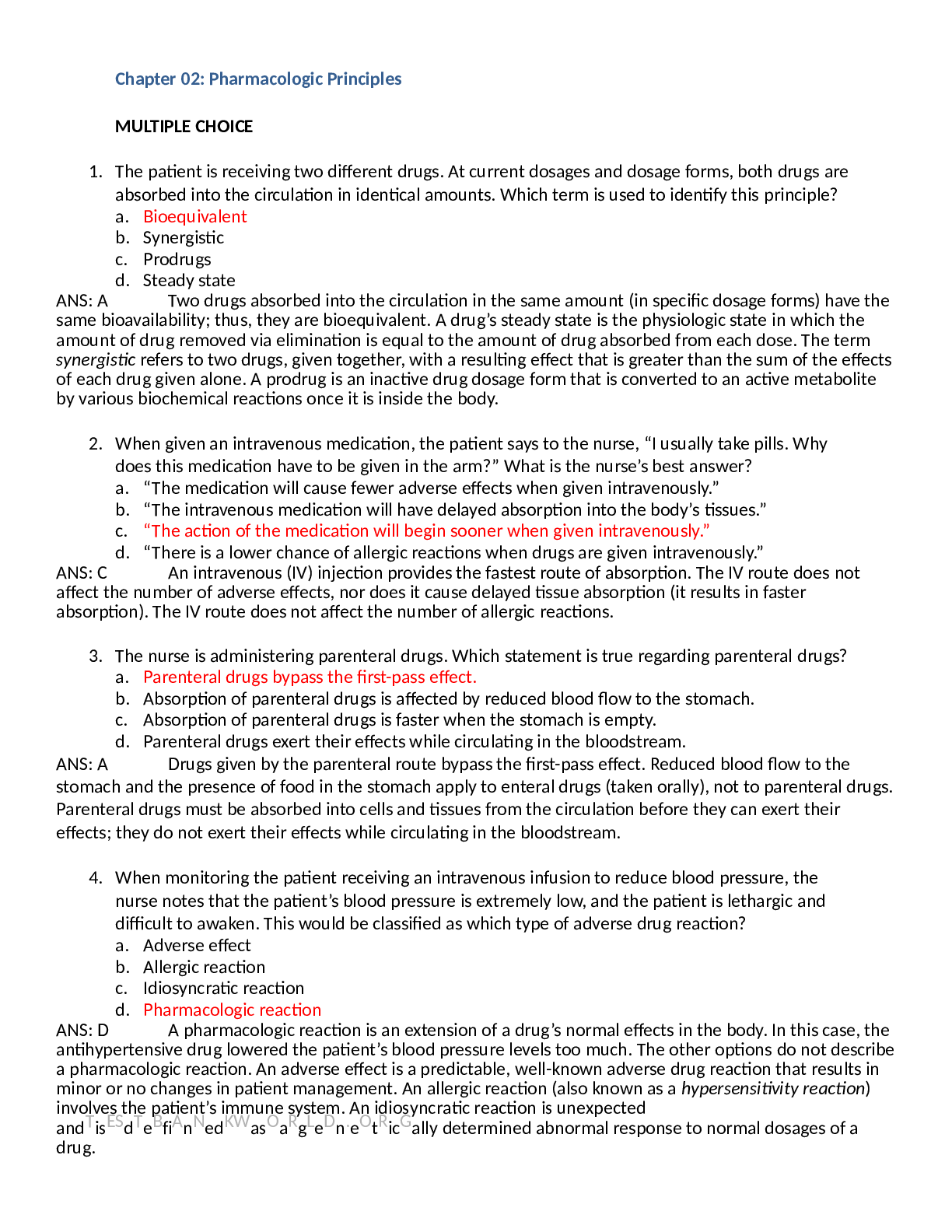
Reviews( 0 )
Document information
Connected school, study & course
About the document
Uploaded On
Jun 16, 2021
Number of pages
20
Written in
Additional information
This document has been written for:
Uploaded
Jun 16, 2021
Downloads
0
Views
28

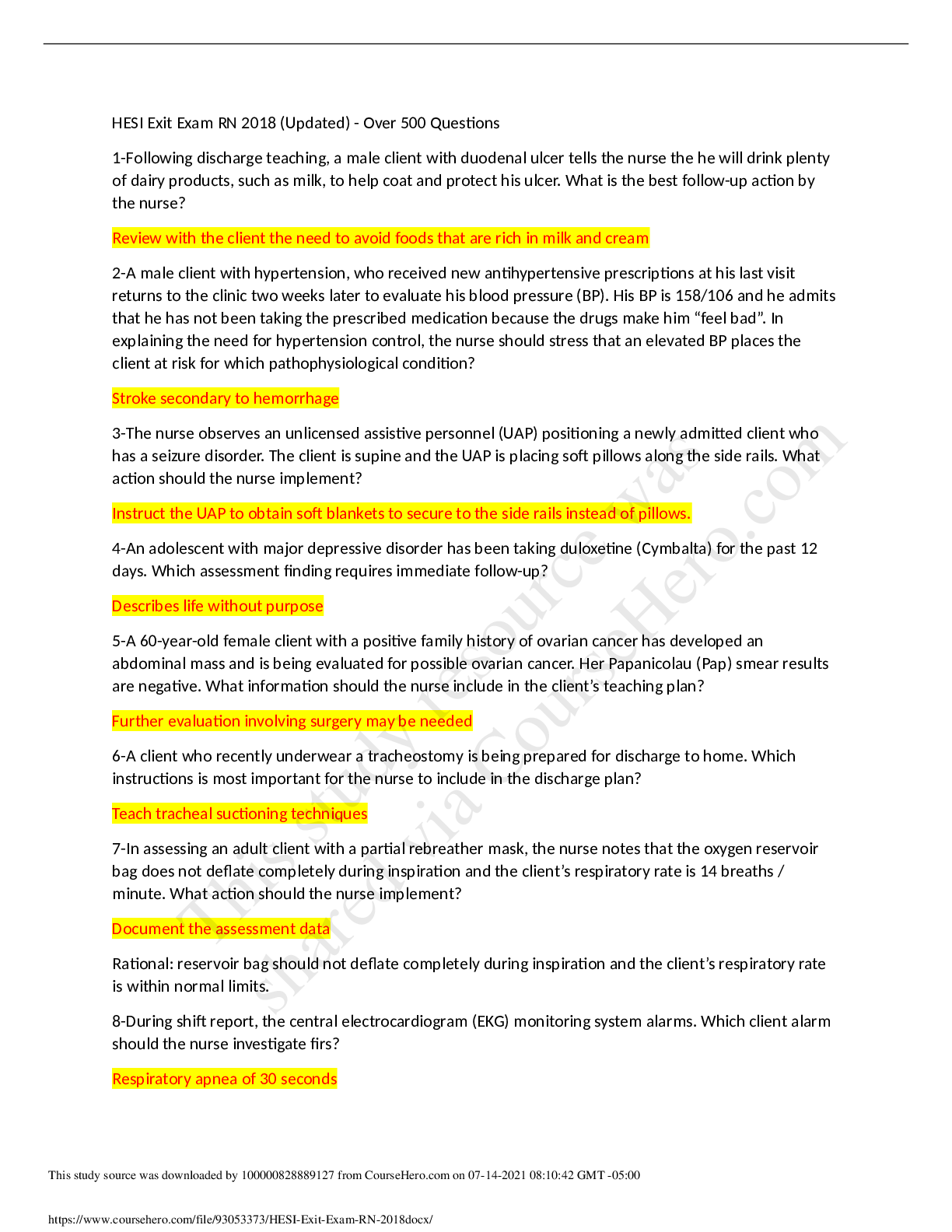
 (2).png)
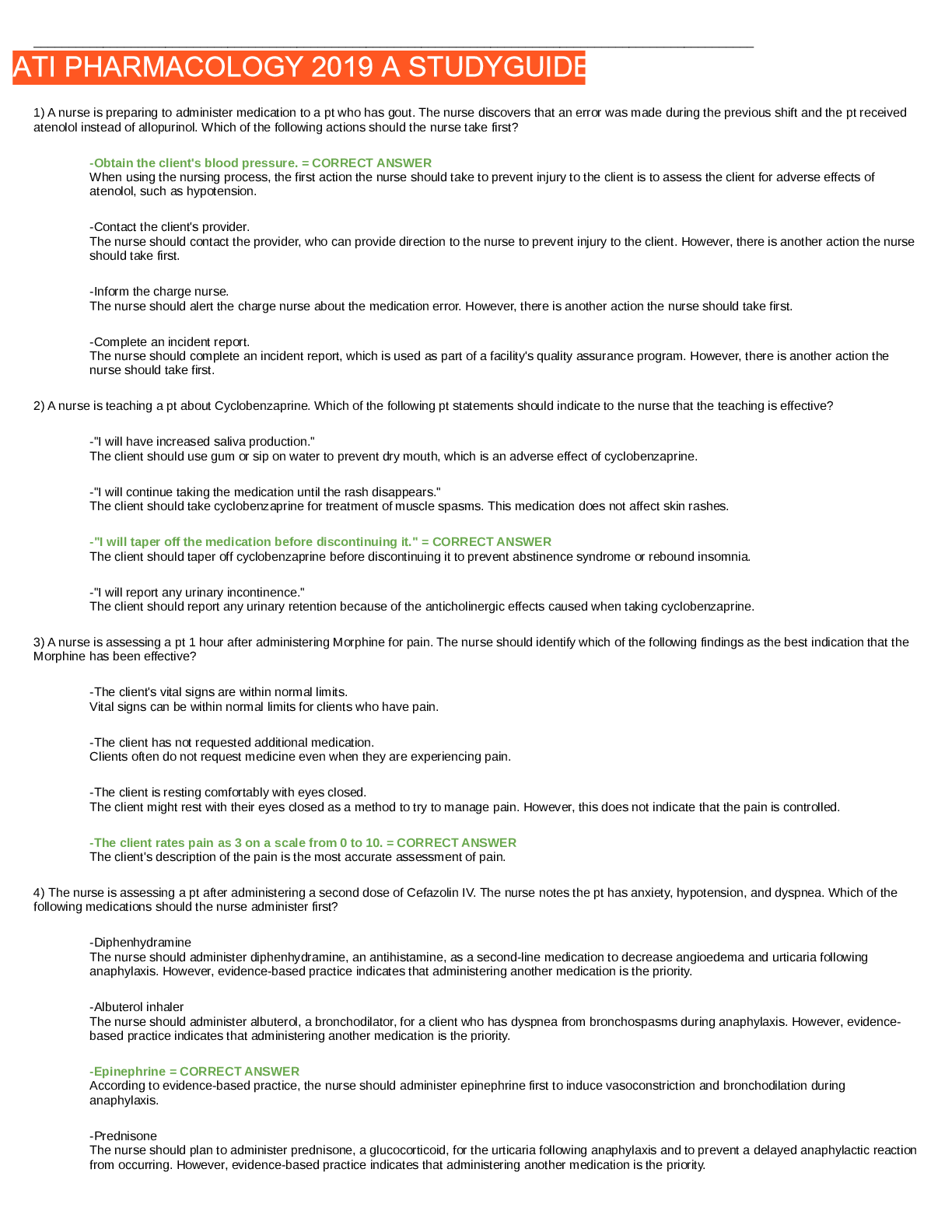
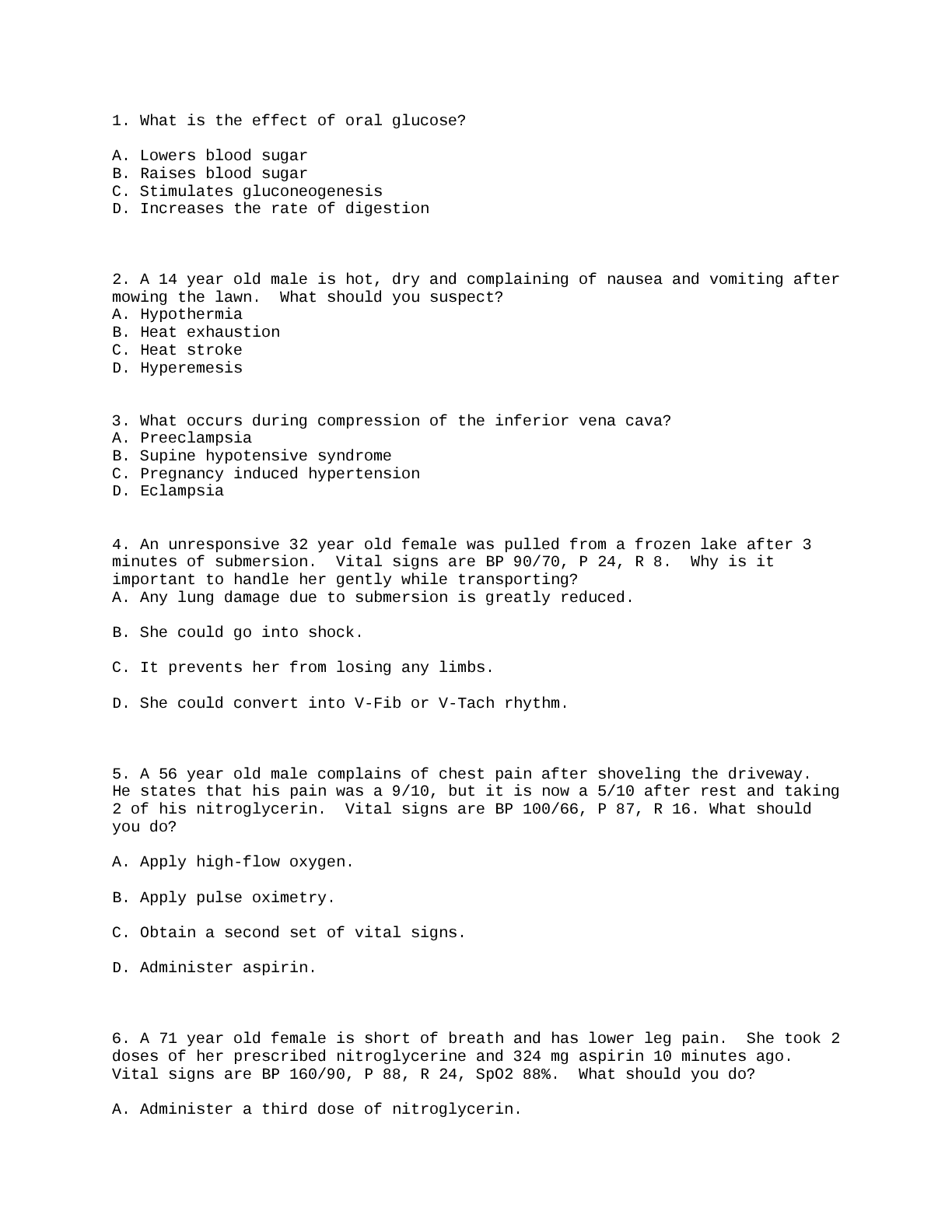
.png)
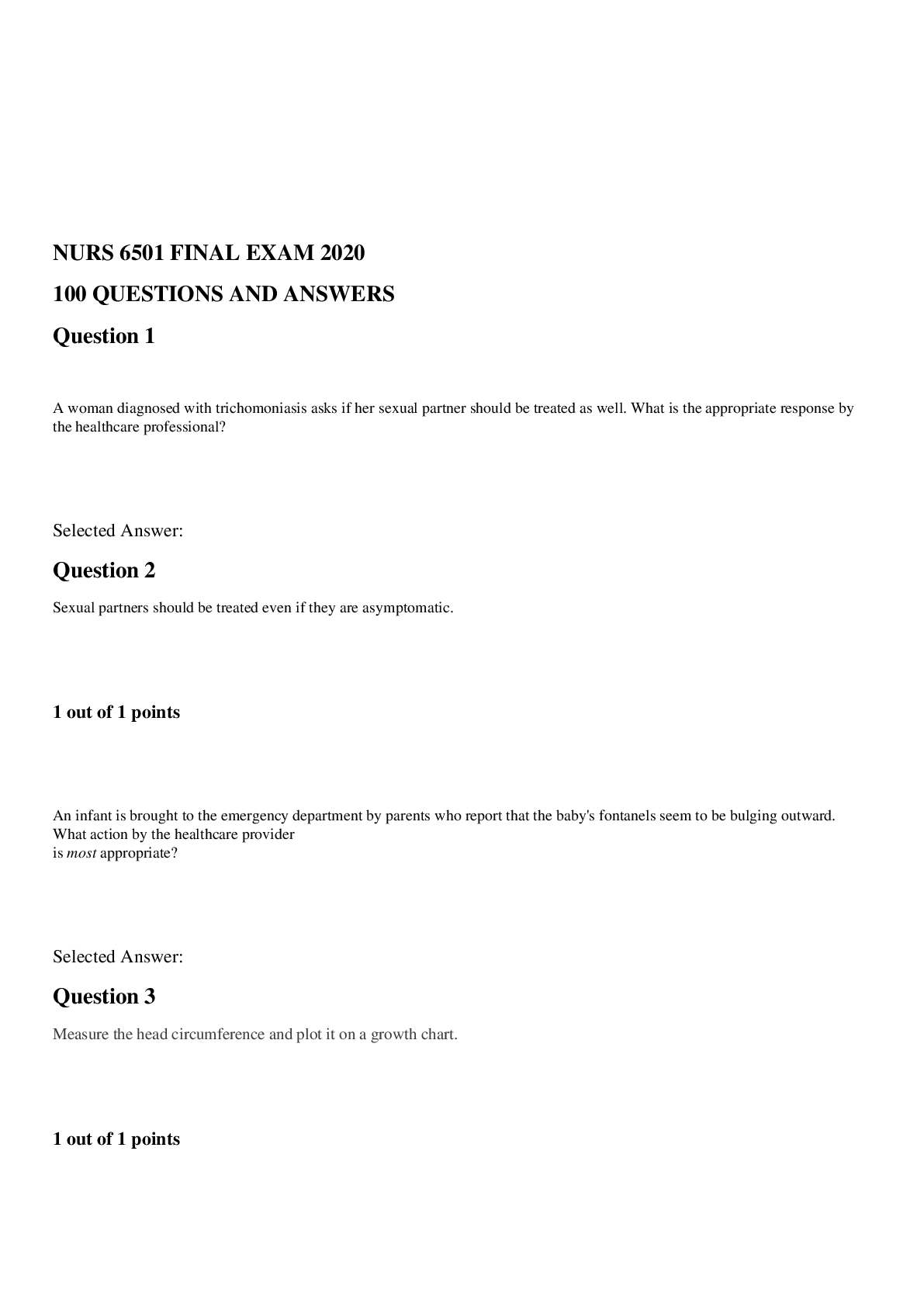
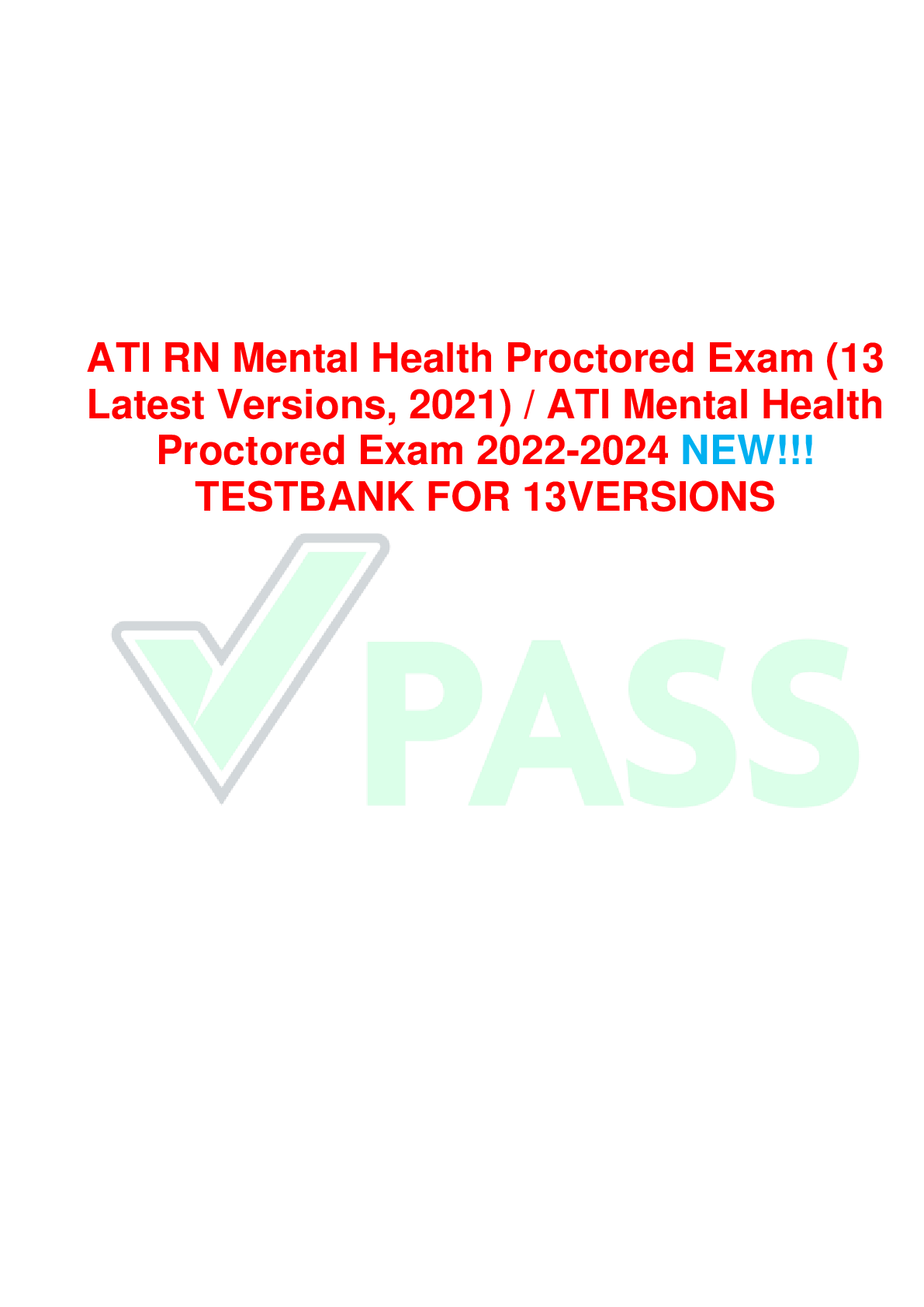
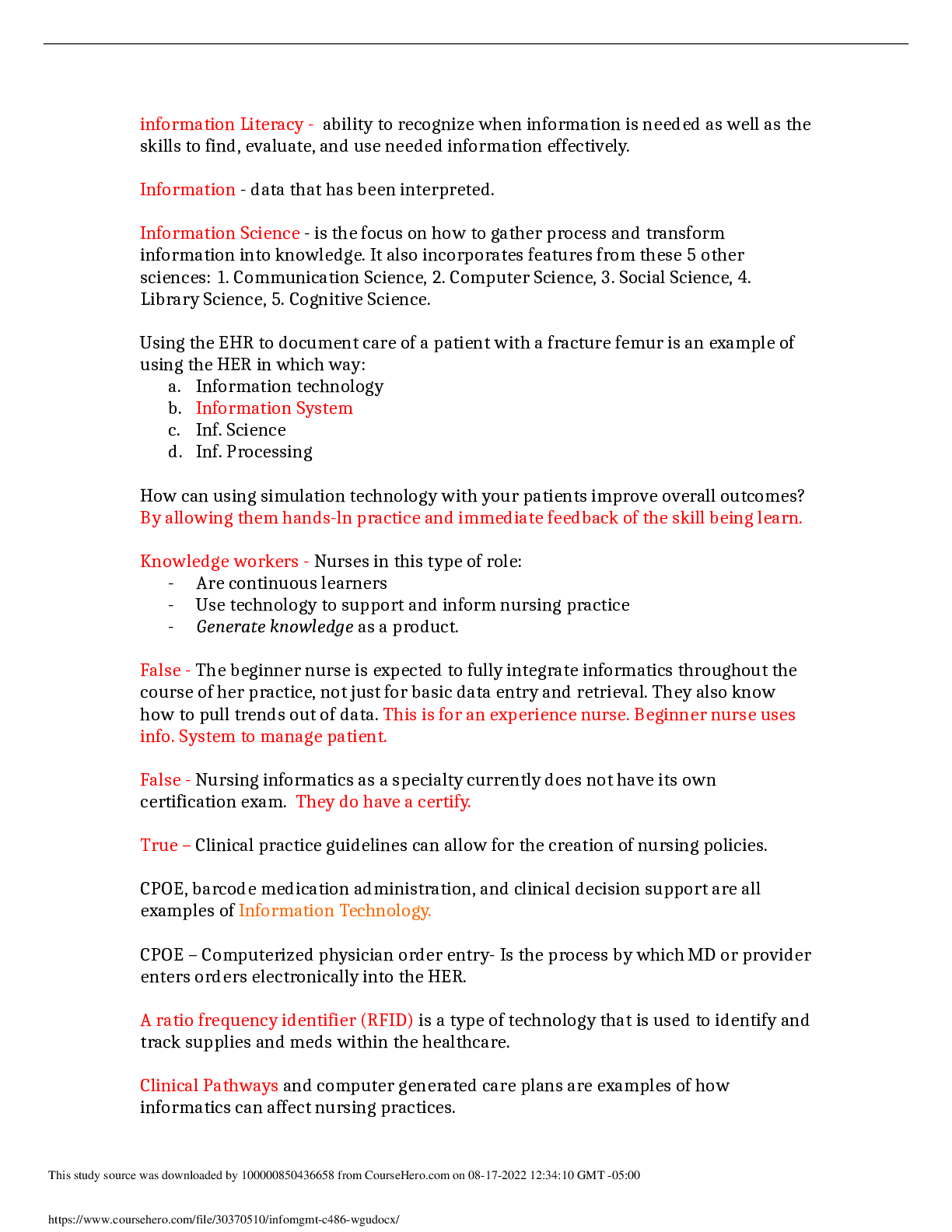
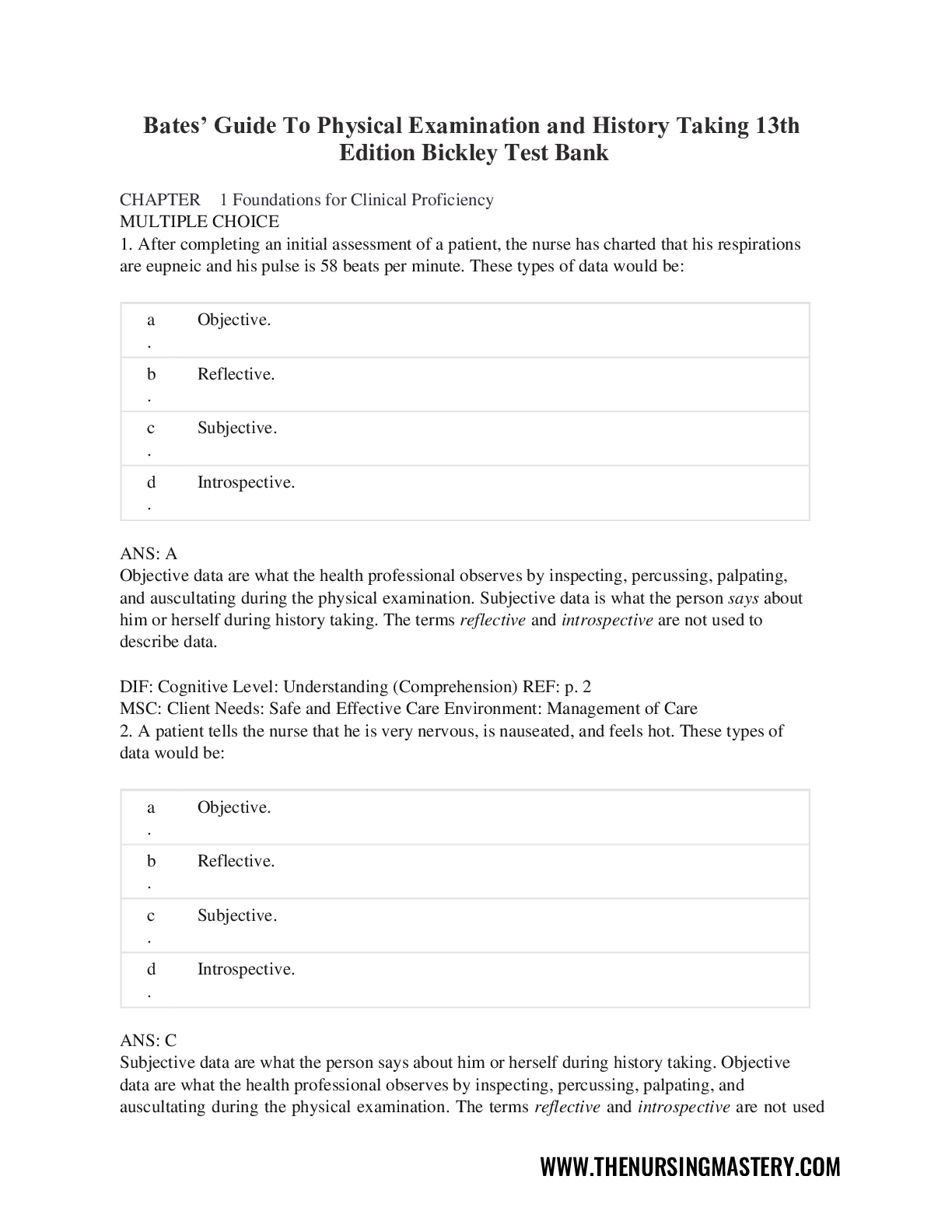
 (1).png)
